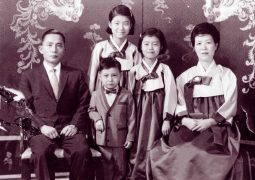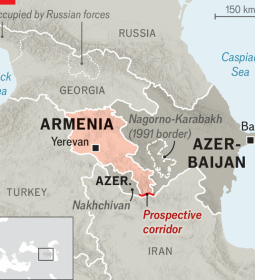Kuwait Hangs 7 Convicts, Including a Prince

LONDON — Kuwaiti authorities hanged seven prisoners on Wednesday in a mass execution, including a member of the royal family.
Five of the prisoners were foreigners: one each from Bangladesh, Ethiopia and the Philippines, and two from Egypt, according to the state-run KUNA News Agency.
The prince who was executed was Faisal Abdullah al-Jaber al-Sabah, a captain in the Kuwaiti Army. He was convicted of premeditated murder and illegal possession of a firearm, the government said in a statement.
The murder victim was the prince’s nephew. The motive for the killing was unclear, though Kuwaiti authorities concluded that it was not political, according to local news reports.

It appeared to be the first time since Kuwait gained independence in 1961 that a member of the royal family was executed. The head of the family, the emir, has the power to pardon the prince; the fact that he let the death sentence stand is being seen as a signal that all Kuwaitis are accountable before the law, even the highborn.
Saudi Arabia took a similar step last year, executing a prince who was found guilty of shooting a man to death after a brawl.
The other Kuwaiti citizen executed on Wednesday was Nusra al-Enezi, a woman convicted of murder after setting fire to a tent at her husband’s wedding, apparently in revenge for his taking a second wife. The fire killed at least 50 people, including women and children.
The Philippine government said on Wednesday that it had tried and failed to prevent the execution of its citizen, Jakatia Pawa, a domestic worker convicted of killing her Kuwaiti employee’s daughter.
“The department and the embassy made last-ditch efforts trying to save her,” Charles Jose, a spokesman for the Department of Foreign Affairs, told reporters in Manila.
Human rights groups condemned the executions, which were the first in Kuwait in more than three years and reflected a wider return to the death penalty in the region. Bahrain executed three men by firing squad on Jan. 15, the first executions there since 2010.
“The death penalty is the ultimate cruel, inhuman, degrading punishment,” Samah Hadid of Amnesty International’s Beirut office said in a statement. “Its use cannot be justified under any circumstances. Instead of resuming executions, the Kuwaiti authorities should immediately work to review laws relating to the death penalty and establish a moratorium on executions, with a view to ultimately abolishing the death penalty completely.”
- Previous New Pentagon chief to visit Japan, South Korea next month
- Next North Korean Defector Says Kim Jong-Un’s Control Is Crumbling
















